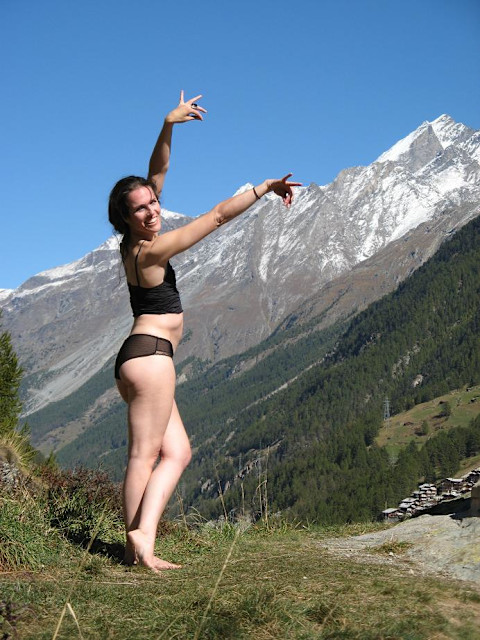
The long contested debate between religion, spirituality and yoga is one that clearly states, "yoga and Christianity shouldn’t dabble with each other." Take the hate letter written to Sadie Nardini, a yoga teacher. It’s an interesting read and here it is if you missed it.
When we dig into the history of yoga there are many reasons for this due to the fact that yoga evolved around the same time as Hinduism. So no kidding that the deities surface themselves. In its purist essence the yoga postures are a way of praising the 330 million Hindu gods and in India this is done in front of statues. As a result, many Christians frown upon the practices of yoga given that one of the 10 commandments clearly states, "Thou shalt not bow to false idols."
Coming from a Protestant upbringing this commandment is pretty big. But it probably was not until I travelled to India and witnessed a woman bowing to Ganesha that I became aware of the nature of my own conditioning. I think it is relatively easy to claim we are open-minded until we are face to face with real life examples. One of the things I just love about India is the way different belief systems are right in your face and no one is asking for permission.
It is, however, only Christians who struggle with yoga but other religions too. In my classes, I have had Muslim students who spoke to me about how they felt chanting "Om"was against their religion. They choose to abstain from chanting. I have also had Jewish students who took issue with some of the more obvious chants using words such as Brahman. When literally translated Brahman means God so for her this was inappropriate.
Now as a yoga teacher these are important issues to contend with. Do you simply accept the student’s view and try to amend your classes? Do you try to make them see your point of view? Do you take the Pollyanna approach and turn a blind eye? Do you tell them we chant "om" and everyone participates or leave?
While teaching yoga it is important to respect other people’s views, belief systems and understandings. This is the easy part. The more challenging one is that it is none of my damn business whether or not a student has strong religious beliefs, doesn’t understand her religion properly and/or picks and chooses what she likes. I think many people talk about not imposing their beliefs but when it comes down to it the reverse is true. It validates our position and makes us feel good if everyone agrees. If no one speaks privately to me about chanting then it is all right. But what happens when they do?
Quite obviously there is a fine line between educating people and imposing our own belief system. Further to this is the dilemma in having to choose chants (or not) in the class. When my Muslim student spoke to me about not participating I made it clear that it would not be omitted. This was an opportunity for us to respect each other and to learn to give and take. I also feel it is one thing to respect your student’s view, but does not equal compromising your own understanding as a teacher.
The opposite approach of "f * _k" those students and I can get new ones might work for some, but is perhaps not the most productive. It is also totally hypocritical since as a teacher we stand amongst people claiming to offer the universal teachings of yoga! Certainly a struggle lies between bringing yoga into the context in which we teach and the content of the class. Had my Muslim student told me she did not accept me chanting at all, I might have had to suggest that what I am offering is not the best fit for her.
These really are important issues and questions to wrestle with. It brings to mind the challenges in teaching real yoga, which go far beyond telling your class, "Hey everyone let’s touch our toes."
How boring.
